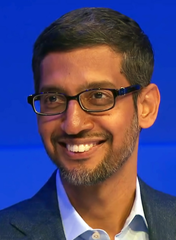 So there is going to be a day – (it may have already arrived) when AI is given a quantum computer to play with. Lets call this “day one”…. Once that happens it’s probable that all standard security on existing networks will be compromised.
So there is going to be a day – (it may have already arrived) when AI is given a quantum computer to play with. Lets call this “day one”…. Once that happens it’s probable that all standard security on existing networks will be compromised.
There is also the matter of a network protocol called BGP (Border Gateway Protocol). The problem with that protocol is that unless your monitoring it continually and applying a degree of secure network management, huge amounts of data can be siphoned off on it’s way to it’s legitimate destination.
There are a number of examples and instances where large amounts of data have been hijacked. Now currently that data may not be able to be deciphered. But if you record and store it then throw a Quantum AI at the task, all of that historic data may be accessible.
So think about the implications of this, all banking transactions become vulnerable, all military and government communications. We are talking a very deep rabbit hole.
But let’s also open this up for further speculation – during world war two after the Allies had cracked the German Enigma machine, the fact that they had access to all communications was kept top secret.
While the Germans never found out the Allies could solve their codes, they suspected it as their ability to sink Allied shipping slipped dramatically in 1942.
So if and when this “day one” happens we probably won’t know about it.
For me the recent Crowdstrike adventure was a wake up call on a personal level. It made me aware that cash (even just an emergency fifty or a hundred bucks) is probably a good idea. I’m not heading for the woods quite yet. But a digitally insecure world? It is something to contemplate!


 So I’ve been thinking about this for a while now. Operation Aurora was an attack on Google and a number of other companies and it is believed that it was a Chinese state sponsored attack.
So I’ve been thinking about this for a while now. Operation Aurora was an attack on Google and a number of other companies and it is believed that it was a Chinese state sponsored attack.